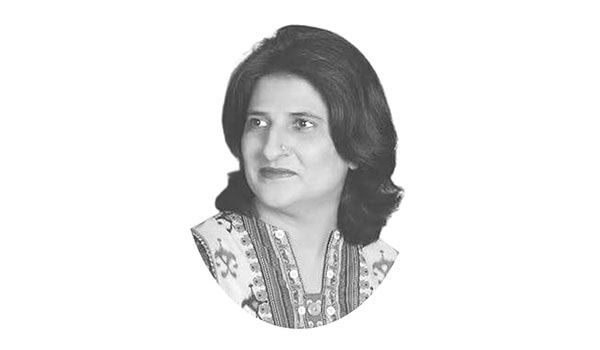Economic logic and blocs diplomacy
DIPLOMACY is like a theatrical performance. You have to act according to your role wearing an expression on your face according to the demand of the meeting—the scene.
Diplomatic theatre and its techniques have drastically changed in the last three decades and students and practitioners of diplomacy understand that bygone are the days of bloc diplomacy and thanks to China for introducing a new genre that is incentive diplomacy.
The new genre has outrightly taken over the diplomacy of “either you are with us or against us”.
I have already written so much on this issue and now again sharing my viewpoint because the Chinese President Xi while addressing at BRICS meeting on 22 June 2022, has categorically expressed that history has shown that hegemony, group politics and confrontations between blocs bring neither peace nor stability, but war and conflict.
His address at BRICS is also an eye-opener for countries like Pakistan that are over-depending and overestimating their geopolitical and strategic locations.
President Xi indicated countries will surely end up in security hardships if they place blind faith in their positions of strength, expand military alliances and seek their own safety at the expense of others.
Though his message was in reference to the Ukraine war he was referring to but his message that does not seek your security at the expense of others is also a message to read carefully for everybody—everybody including Pakistan.
We can find many regional analysts who always promote that Pakistan is strategically very important for China and China will look after Pakistan’s security if we ever have a war-like situation.
The year 2021 again testified to the credibility of thousands-year-old phrases that “be ready with your horse and sword and trust your own strength as you cannot look at others to safeguard your motherland”.
Yes, we have seen it in the Ukraine-Russia conflict where Kyiv has been running between Washington to Brussels to procure basic weaponry and the resources it needed for war.
The West had been sanctioning Russia for this conflict while Russian President Vladimir Putin is redirecting its trade and oil exports to BRICS countries as a result of Western sanctions.
It may be mentioned that Brazil, Russia, India, China and South Africa are members of BRICS that account for more than 40% of the global population and nearly a quarter of the world’s gross domestic product.
China has become the largest buyer of cheaper Russian oil and gas while the West is facing an acute situation and a historic price hike of energy resources.
Who is facing the brunt of sanctions? Russia or European countries? We know that the foundation of capitalism is a free economy that stands on free trade while the capitalist West has denied this rule for decades.
Long-lasting trade sanctions against some western countries, Pakistan (for sometimes back in the 90s) Iran and Russia have provided survival kits to sanctioned countries who have learned to live without the support of the West but western countries surely miss business and trade opportunities with them.
Steve . Hanke, who is a professor of applied economics at Johns Hopkins University believes that sanctions historically are quite counterproductive in the sense that if you impose sanctions on your enemy, it tends to strengthen your enemy.
European supermarket chains have been replaced by Chinese and Indian supermarket chains and Chinese cars have got a stable Russian market in less than six months.
The next step China and Russia are working on is developing “alternative international transfer mechanisms” to reduce dependence on the Dollar and Euro but that needs time and technical support and this initiative will be risky for China that trades with the entire world and cannot change the system overnight.
It can be a dream for President Putin but a dangerous gamble for others. I strongly support the viewpoint of President Xi that he expressed in the BRICS Forum that sanctions could act as a “boomerang” and a “double-edged sword,” for initiators (who announced sanctions).
I believe that the world has gone ahead from the “War Economy” phase and the political Romanticism of the 60s had already died down when people used to buy household after reading tags to know the origin of the product and today buyers only read “price tag” and watch their pockets and affordability.
Remember the United States is one of the largest importers of Chinese goods. “The best way to boost the economy is to redistribute wealth downward, as poorer people tend to spend a higher proportion of their income. ” ¯ Ha-Joon Chang, 23 things they don’t tell you about capitalism.
—The writer is a Prague-based author, columnist and foreign affairs expert who writes for national and international media.










